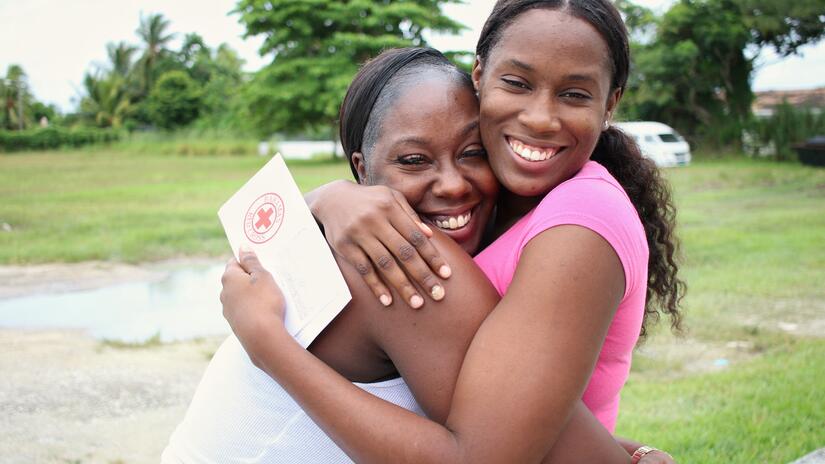Panama/Geneva/Bahamas, 2 December 2019 – Three months after communities across the Bahamas were devastated by Hurricane Dorian, the Red Cross has supported more than 9,000 families by providing emergency relief, psychosocial support, and financial assistance.
In the aftermath of the storm, Laurel Dean, her sister Emilyann Johnson, and their children were evacuated to Nassau. Their home on Abaco Island was destroyed, so the sisters are finding jobs, enrolling their kids in school and working hard to get back on their feet.
“When you have that mindset, there is nothing else you can do except just push forward,” Emilyann said. The Red Cross is supporting their recovery through financial assistance.
Volunteers and staff from the Bahamas Red Cross have been supporting affected communities since Hurricane Dorian made landfall on 1 September. The Category 5 storm remained in the Bahamas for almost two days, causing widespread destruction to homes and infrastructure – particularly on the northern islands of Grand Bahama and Abaco.
Three months later, communities have regained teleconnectivity, road access has improved, and ports and airports are operational again. Many residents are starting to return home to Abaco and Grand Bahama to assess the damage to their homes and determine their next steps.
Red Cross and Red Crescent partners, including the International Federation of Red Cross and Red Crescent Societies (IFRC) continue to support people affected by the disaster. The emergency relief phase is now transitioning into one of long-term recovery. Ongoing interventions include health care, water, sanitation and hygiene, financial assistance, and activities designed to prevent and respond to violence against vulnerable groups.
Walter Cotte, IFRC’s Regional Director for the Americas, said: “Extreme weather events like Hurricane Dorian can’t be prevented, but they don’t have to become disasters of the scale we saw in the Bahamas.
“We now need to rebuild and repair with the next hurricane in mind, by ensuring communities have stronger buildings and more resilient infrastructure. This will greatly reduce the impact of future hazards by reducing long-term vulnerabilities across the islands and limiting people’s exposure to potentially catastrophic climate-related events.”
Press release
Red Cross swings into action immediately after Japan earthquake
Red Cross swings into action immediately after Japan earthquake
| Press release

